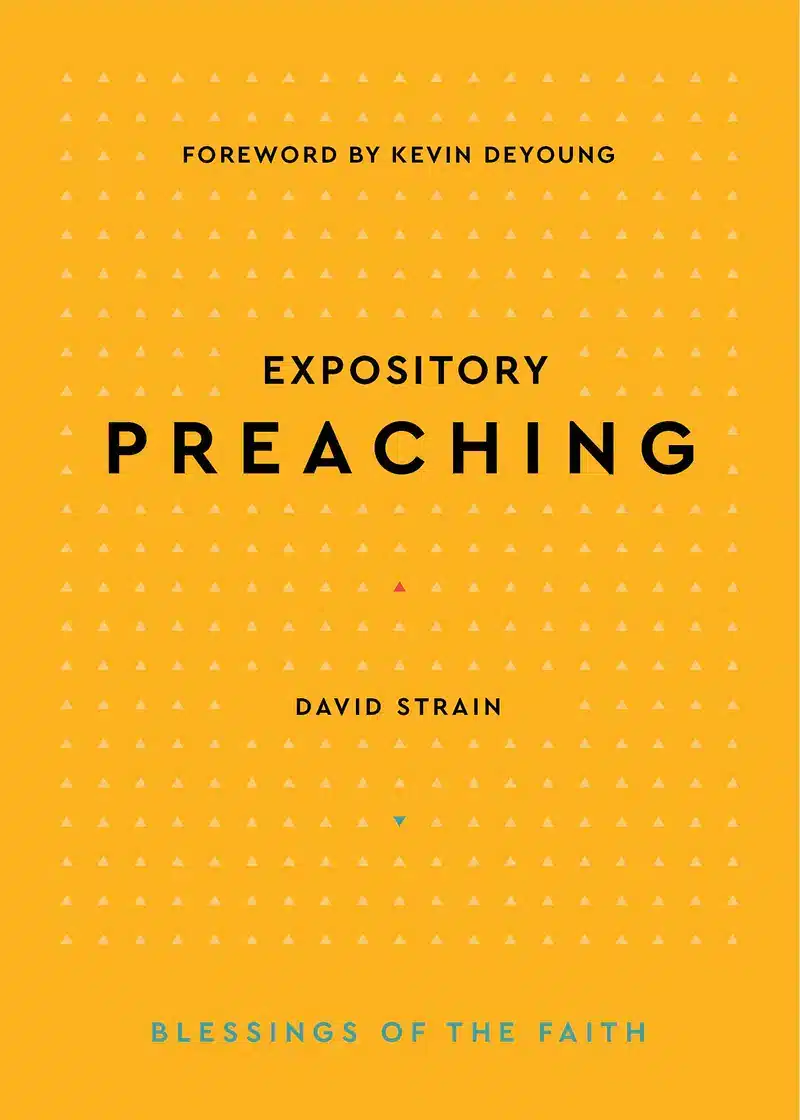David Strain. Expository Preaching. Phillipsburg, NJ: P & R Publishing, 2021. 111 pp. $14.99.
If you’ve been around evangelicalism for any length of time at all, you’ve likely witnessed a worship war or two either in person or from a safe distance. Typically, the struggle in such debates is precipitated by a faulty definition of worship or an unbiblical attempt to worship God. For instance, in Expository Preaching, David Strain in his book provides the following commonplace statement that floats around from church to church within evangelicalism:
This way of thinking is sometimes reflected in the words of the “worship leader” who begins the service, saying, “In a little while Pastor John will come and talk to us from the Bible. But first we are going to have a time of worship. Close your eyes and shut everyone out, It’s just you and Jesus.!” (53)
This is diagnostic statement that reveals a serious deficiency regarding worship as a whole and specifically the preaching of the Bible. Stain’s book is both informative and helpful to think through the issues of biblical preaching.
God has addressed his world, and specifically his people, in the pages of the Bible. Therefore, out of all of the ordinary means of grace that God’s people enjoy through weekly worship, preaching stands as primary. David Strain explains, “It has been said that it takes a whole Bible to preach a whole Christ to make a whole Christian” (38). The blueprint of God does not include sappy-happy storytelling, pep-rally cheerleading, life-coaching, conversational counseling, or as David Strain describes, “peppy TED Talks on uplifting issues” (41). The plan for God’s people is the faithful preaching of God’s Word. Biblical preaching is verse-by-verse preaching, better titled expository preaching, the name given to this book.
As Strain points out, expository preaching is modeled throughout history, and it naturally models how one should read and study the Bible. A firm commitment to expository preaching guards the preacher from hobby horses, and most importantly, it directs the church toward Christ. Strain explains:
So why do we need our pastors to preach expositionally? We need them to because our great need as Christians is to hear from God. Nothing ensures that the message of the sermon conforms to the message of the text like careful exposition. (49)
Perhaps one of the strangest statements that can be made regarding the preaching of the Bible in our day is that preaching is worship. The overwhelming majority of evangelicalism views singing and music as worship, and preaching is in a completely different category altogether. This is a sad indictment of the lack of health regarding evangelicalism as a whole. David Strain explains at the opening of the second chapter by writing:
My contention is not only that preaching should derive its warrant, its authorization, from the commands of Scripture—the Bible clearly commands preaching, after all—but that preaching should also derive its form, its basic method and shape, from the character of Scripture. (34)
As Strain moves along through the book, he makes the case that preaching is not some esoteric communication that happens in the front of the service each week. The preacher must avoid the ditch of being a shallow, funny, ultra-relevant communicator, as well as the ditch of the complicated data dump commentary that insists on employing technical vocabulary consisting of multisyllabic words that only a small percentage of the church understands. Faithful expository preaching, as Strain explains, connects the preacher (as shepherd) and the people (as sheep), which enables fruitful discipleship as the Scriptures are faithfully expounded.
The strength of this book is that it is short and very accessible for the entire church. Far too often, books for preachers on the subject of preaching can be overly technical and out of reach for the common church member in the congregation. That’s not the case with this book. In fact, it would be really good for church members to read this book in order to understand the importance of expository preaching and the foundational commitment that goes into the weekly work from the pulpit for the health and strength of the local church.
The old saying, “He who lives by the sword dies by the sword” carries quite a bit of weight when it comes to the associations and quotations of authors. When you walk into a man’s library, you begin looking at his bookshelves to see who he is reading, because the men on the shelves will have a formidable impact on the man sitting in the office. I like to think of quotations as little bite-sized advertisements or commendations. Therefore, when we quote someone or a specific work in an article or book, it is important to remember that we have a stewardship opportunity that must be taken seriously as it pertains to discipleship. The quotations of men like Tim Keller are more of a distraction to the many good points that Strain makes in his book.
Perhaps one final critique would be the lack of work done on the definition of expository preaching at the beginning of the book. While Strain quotes David Helm, he doesn’t spend much time fleshing out that definition or expanding it in such a way that could be helpful to both preachers and average church members who read his book.
As a whole, I found David Strain’s book refreshing and beneficial. I would encourage preachers and teachers of the Scriptures to read this short, accessible book, which can both encourage and correct at the same time. Often around G3 Ministries, you hear a statement about the importance of preaching repeated in workshops, sermons, and articles: “As the pulpit goes, so goes the church.” If there was ever a time in the history of the church where we needed a revival of faithful preaching, this is the day. For that reason, I commend Strain’s book on expository preaching to local churches.
Josh Buice
G3 Ministries





